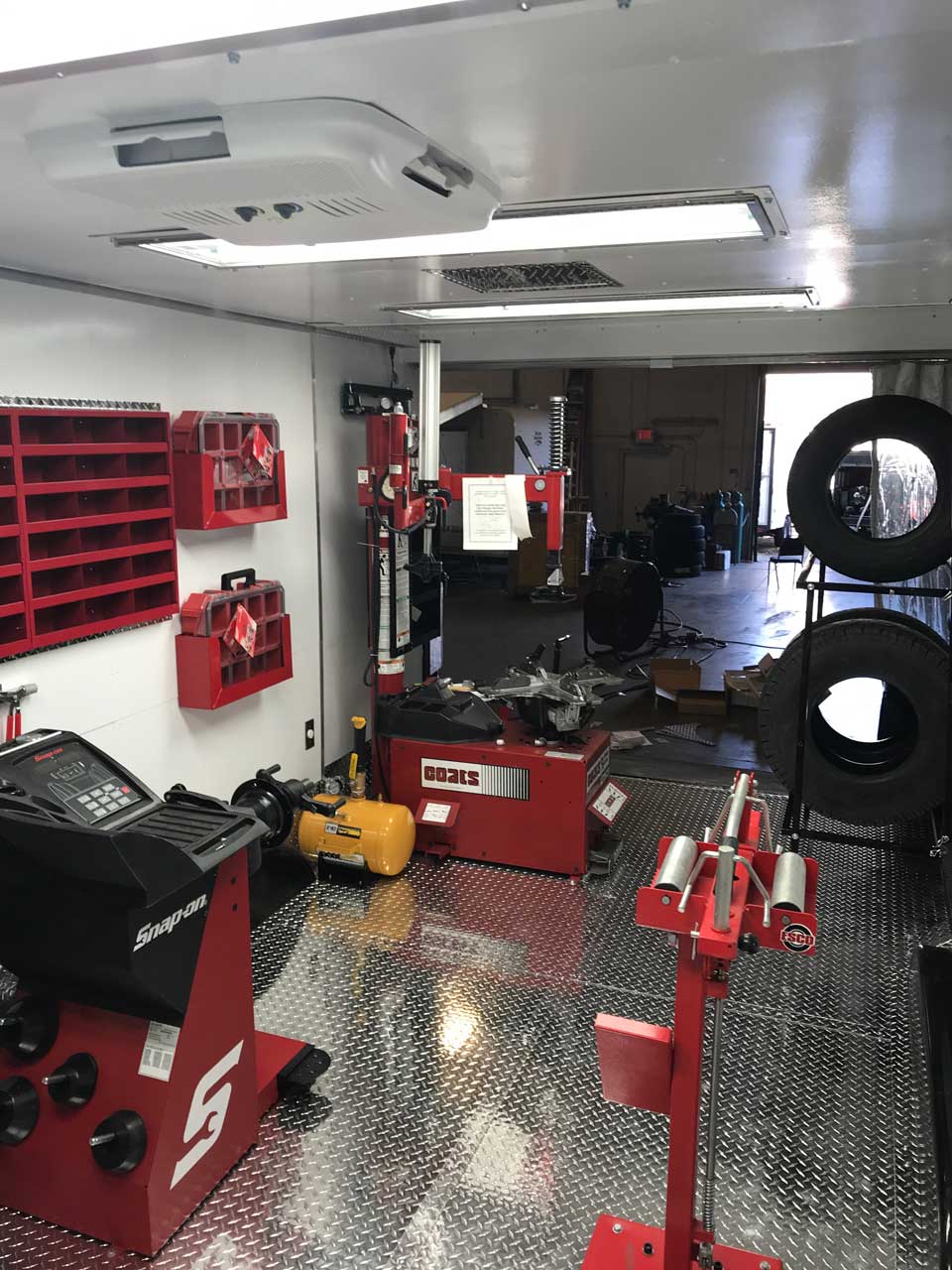Morris Tires: Your Companion for Professional GMC Tires Service
Morris Tires: Your Companion for Professional GMC Tires Service
Blog Article
Tire Solution: The Influence of Climate Problems
When it comes to ensuring ideal performance and safety on the road, recognizing the effect of weather condition conditions on tire solution is critical. GMC Tire Service. In this conversation, we will certainly check out the complex connection in between weather problems and tire solution, losing light on the significance of weather-specific tire upkeep methods and factors to consider.
Heat and Tire Efficiency
When exposed to high temperature levels, tires experience adjustments in performance that can dramatically affect car safety and handling. The warmth generated from long term driving or heat problems creates the tire rubber to soften, resulting in lowered step life and increased wear. As the rubber becomes softer, the tire's grip when driving diminishes, affecting braking distances and general grip. In severe situations, too much warmth can also create tire blowouts, positioning a severe security danger to the lorry and its residents.

Winter Results
Cold weather condition problems can have a significant impact on tire performance and security. In cool climate, tires might additionally lose air stress extra quickly, which can influence managing and fuel efficiency.
To mitigate the results of winter on tires, it is vital to regularly inspect tire stress and inflate them to the producer's recommended degrees. Utilizing wintertime or all-season tires developed for winter problems can additionally enhance grip and grasp on icy or snowy roadways. Correct tire upkeep, consisting of routine examinations for wear and damage, ends up being a lot more critical throughout cooler months to guarantee optimal performance and safety and security.
Rainy Conditions Influence
Tires with worn-out treads are more susceptible to hydroplaning, where a layer of water builds up between the tire and the road surface area, leading to loss of grip. To combat this, chauffeurs need to on a regular basis check their tires for ample walk depth and think about spending in tires especially informative post made for wet conditions.
Moreover, wet climate can also reduce visibility, making it testing for chauffeurs to see the roadway ahead plainly (GMC Tire Service). In such conditions, it is important to readjust driving speeds as necessary and keep a secure following range to permit unexpected stops. Correctly inflated tires can likewise aid in keeping control on damp roadways by providing far better handling and grip
Snow and Tire Safety And Security
When driving in snowy problems, having the appropriate tires can make a substantial distinction in security and efficiency. Winter season tires are made with unique rubber compounds and walk patterns to provide much better grip on snow and ice compared to all-season tires.

It is vital to adhere to maker guidelines when making use of and installing tire chains to protect against damage to the tires and car. By picking the ideal tires, maintaining appropriate inflation, see this page and considering additional traction help like tire chains, vehicle drivers can enhance their safety and security when browsing snow-covered roadways.
Weather-Related Tire Upkeep
When confronted with various climate condition, proper tire upkeep becomes a crucial element of automobile security and performance. Weather-related tire maintenance includes a variety of practices targeted at ensuring optimum tire feature and longevity in various weather circumstances. One crucial element of weather-related tire upkeep is tire pressure guideline. Fluctuating temperature levels can cause tire pressure to vary, impacting traction and fuel effectiveness. Routinely checking and changing tire pressure according to manufacturer referrals is necessary for safe driving in transforming climate problems. Furthermore, tire step deepness plays a considerable role in taking care of various weather components. Tires with adequate walk deepness offer much better grip on damp or icy roads, decreasing the risk of hydroplaning or skidding. When walk wear reaches a certain deepness is vital for maintaining traction and stability in damaging climate, inspecting tire step routinely and changing tires. By prioritizing weather-related tire maintenance, vehicle drivers can improve safety and security, enhance car performance, and extend the lifespan of their tires.
Final Thought
To conclude, weather have a considerable impact on tire efficiency and security. From warmth affecting tire pressure and put on to winter minimizing traction, it is important to think about the climate when keeping and using tires. Wet problems can decrease grasp and cause hydroplaning, while snow can boost the threat of crashes if tires are not effectively equipped. Weather-related tire upkeep is essential in making certain ideal performance and safety on the roadways.
In this discussion, we will certainly explore the detailed partnership in between weather conditions and tire service, shedding light on the significance of weather-specific tire maintenance practices and considerations.

Report this page